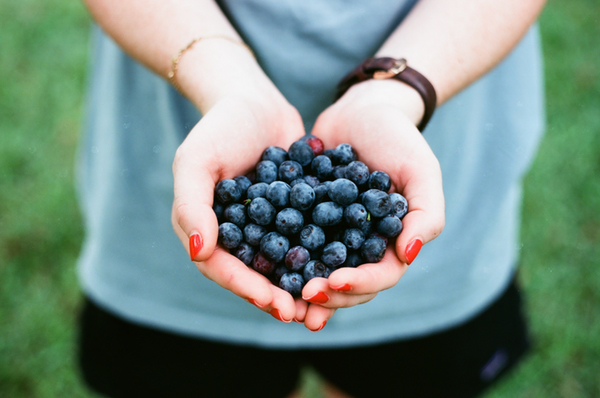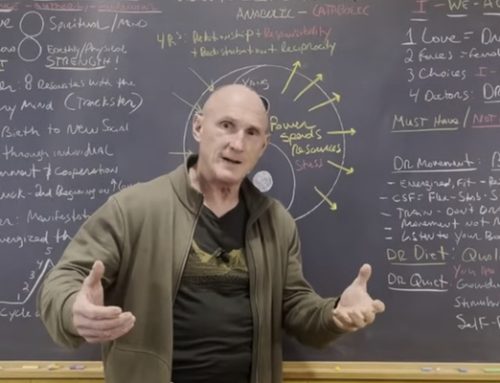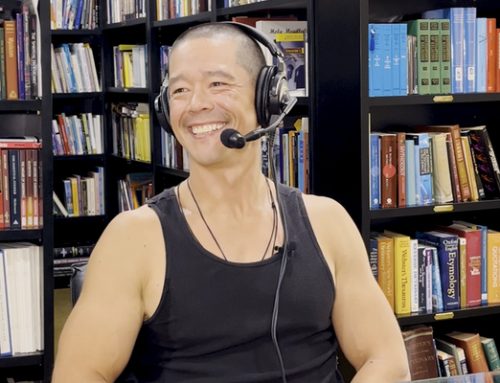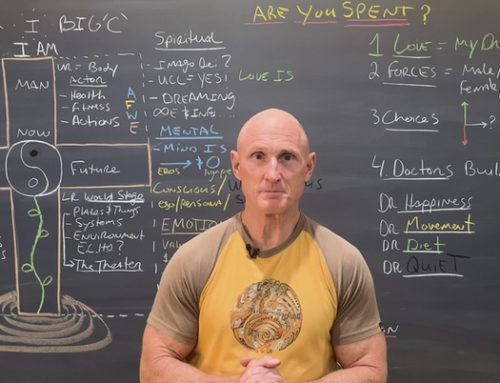One of the biggest problems worldwide is diet. Before I wrote How to Eat, Move and Be Healthy!, I found 4,369 books listed on the internet at that time that were written about diet in the U.S. alone!
Then, I spent a few hours looking up information about the authors of these books. It was quite shocking to see how many authors of diet books didn’t look like their diets were working very well for them.
That’s what happens when you get caught up in intellectualism. Carl Jung says intellectualism is a cover up for fear of direct experience, a paradox of our culture: There’s way too much thinking about ideas and not paying attention to what happens when you apply them.
In part 4 of my series on The Fastest Way to Health, I share some key diet tips in this vlog you can apply that will create noticeable changes in your health and vitality.
Eat organic or biodynamic foods
You want to eat as much organic or biodynamic foods as you can afford in your diet. There’s a lot of research claiming that organic foods are no more nutritious than non-organic ones. Don’t believe that hogwash.
Most of these studies were funded by organizations that own at least 90 bogus organic certifications. Then, these companies provide foods from their own commercial farms for companies like Kraft, PepsiCo and Heinz.
They conduct research on foods from their own commercial farms, then compare it to what they claim are organic foods, but it’s all the same stuff with a different label on it. (If you’re interested in knowing what it really takes to grow organic foods, check out the Demeter Association, the gold standard for organic certification.
If you’re going to eat something from the planet, there’s no sense in eating cheap foods from toxic soils that have chemicals sprayed on them or those grown with NPK fertilizers. (There’s a mountain of research about this stuff I’ll share with you in a future vlog series.)
Go for the least toxic and highest nutritional value in the foods you eat. There’s no question about the greater nutritional value of real organic foods
On average, studies show animals and human beings eat about a third less when they’re consuming organic foods because their nutrient density is so high that it triggers the satiety centers earlier.
Yes, it costs more money, but it’s supporting the soil on our planet instead of destroying it and you eat about a third less of it. So, the overall costs go down and the reduction in medical bills and drugs you need drops significantly too.
Some of you will go through a healing crisis when you switch to organic foods, because you’ll be taking in greater nutrition and enzymes that detoxify your body. Often, you may feel flu-like symptoms, have a runny nose and feel sluggish because your body is pushing all of that garbage out.
If you’re eating clean foods and experiencing a healing reaction like that, don’t treat it as a negative. Let your body do its own cleaning. This is very common.
If you have financial limitations, it’s still safer to buy certified organic foods, free-range meats and wild fish. All animals accumulate toxins in their bodies, so if you’re buying cheaper meats from a store, you’re buying foods with highly concentrated toxins. (Follow the directions in my book, How to Eat, Move and Be Healthy, for more guidance.)
Optimal hydration

The book, Your Body’s Many Cries For Water by Dr. Fereydoon Batmanghelidj, shows that, if the central nervous system is even 1 percent dehydrated, this can result in significant psychological disorders.
I’ve never heard of a psychiatrist who checks how hydrated their clients are, even though up to 95 percent of all human beings are dehydrated on any given day.
By the way, soft drinks, tea, beer and coffee don’t count as water. If you can’t see through a liquid, it’s food that has to go through a digestive process. Think of tea like a soup, and you can’t really replace water with liquid foods.
Dr. Robert Rakowski, who practices functional medicine and nutrition all over the world, says the best solution of pollution is dilution and water is nature’s best solvent.
Listen to and monitor your body
Listening to and monitoring your body not only requires just thinking but paying attention to your emotional reactions to foods.
If you don’t understand this concept, consider this quote from Joseph Campbell: “If you want to know what your God is, ask yourself what you cannot do without for two or three days.” For some of you, that’s sugar. For others, it’s coffee, alcohol or medicine.
You’ll also want to pay attention to what happens when you don’t get certain foods for two or three days. Fact is, you could fast on water for somewhere between 16-20 days — that’s called a medical grade fast — and come out on the other end in a much higher state of vitality.
You want to pay attention to your gut feelings about things too. If you’re paying attention and being honest with yourself, your gut is a good guide. But, instead of listening to our guts, people tend to destroy them.
If we listen to our gut instinct, we have an abdominal brain in there that gives us lots of information. Sometimes, you’re aware of those instincts and something tells you that’s not the way to go.
So, pay more attention to your honest gut instinct than what “the experts” tell you. So long as you’re not doing stupid or dangerous things, listening to your body tell you to eat certain foods or step away from things are intelligent responses from our gut which encompasses part of our capacity to feel.
Primal Pattern® diet typing

I remodeled what has been classically called metabolic typing and created Primal Pattern® typing based on the research of Weston A. Price and many other pioneers of native and ancestral diets, along with my own life experience with my own body and coaching many thousands of people.
In How to Eat, Move and Be Healthy!, there’s a questionnaire that will help you determine your Primal Pattern® type which will give you a starting point for what’s right for you. You may learn that you’ll need to eat more like a vegetarian or some of you may even need to fast in the morning
Another important thing to remember: Diets are fixed concepts that don’t work. Look at the science behind them. You’ll always see something like 37 percent had a favorable response, 20-something percent had no noticeable response and X percent had a bad response.
Honestly, that’s just people doing metabolic typing the slow torturous way, instead of learning how to pay attention to how your body is responding, listen to your instincts and intuition, think rationally and use your values and gut instinct to guide you.
Do those things, and you’ll look and feel a lot better. You’ll also have a clearer head, more energy, sex and creativity and won’t spend so much money on pills and silliness.
Reset with mini-fasting
This is a 24-hour fast I like, using Yogi Healthy Fasting Tea. Some of you can get by with fresh squeezed carrot juice (diluted with water, so you don’t elevate your blood sugar too much).
Skip breakfast, then lunch. If you can make it 24 hours, that’s fantastic. Otherwise, have a meal in the late afternoon or evening.
Keep it light and don’t overeat. If you do, you’ll bog yourself down and when you go to bed, your system will become overloaded, you’ll feel bad and you won’t sleep very well.
Doing a mini-fast gives your organs and glands a chance to relax and lets your body catch up and clean itself. I do them quite regularly (probably one or two each month), and always feel fantastic afterward.
After doing one, you may notice things like your senses of smell or taste are enhanced which may fine-tune others too.
More resources for you
In addition to How to Eat, Move and Be Healthy!, you’ll also want to read my multimedia ebook, The Last 4 Doctors You’ll Ever Need, the foundation of this six-part series.
I also have an excellent webinar series on how to identify your Primal Pattern® diet type, that gives you a sample of the kind of material I teach in my Holistic Lifestyle Coach Level 2 which takes you much deeper and gives you more nuts and bolts to work with than I can provide here.
Another book you’ll want to review is Rocket Fuel on a Budget by CHEK Professional Jo Rushton, a professional chef and an experienced HLC instructor in Australia.
When I see you next time, I’ll discuss Dr. Quiet, the doctor focused on rest and relaxation.

Love and chi,
Paul







